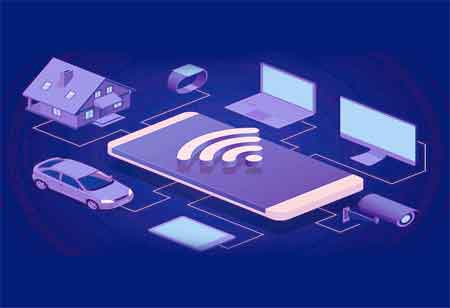THANK YOU FOR SUBSCRIBING
Tips to Keep in Mind for Securing Your Enterprise Mobile Apps
A recent survey demonstrated the impact of the pandemic on organizations progressing their digital business transformation efforts, highlighting that boosting security controls surrounding these activities will entail safeguarding company

By
Apac CIOOutlook | Wednesday, December 01, 2021
Stay ahead of the industry with exclusive feature stories on the top companies, expert insights and the latest news delivered straight to your inbox. Subscribe today.
Fremont, CA: Company mobile applications meet the increased demand for employees to access enterprise data from their personal devices. It's especially true after the outbreak of COVID-19, which caused many workers to work from home rather than in the workplace. While workplace mobile applications provide organizations and their workers with maximum flexibility and increased productivity, they are also vulnerable to security attacks and data breaches.
A recent survey demonstrated the impact of the pandemic on organizations progressing their digital business transformation efforts, highlighting that boosting security controls surrounding these activities will entail safeguarding company mobile applications for nearly half of respondents.
While software-as-a-service (SaaS) suppliers embed basic security into their platforms, there are actions that businesses should take as part of their mobile device management (MDM) strategy to safeguard mobile enterprise apps.
Tips to keep in mind for Securing Your Enterprise Mobile Apps
- Encrypt data
Only half of businesses now have an encryption plan in place to secure their cloud data. Encrypt data sent between devices, apps, and cloud servers using the Advanced Encryption Standard (AES), Triple Data Encryption Standard (DES), VPN tunnels, or HTTPS. Using the more standard AES and Triple DES techniques will also necessitate proper key management. To encrypt apps and data containers, hardware security models, which are devices built for tamper-resistant cryptographic operations and key management, are becoming increasingly popular. Whatever encryption method(s) the firm employs, it should be layered with firewalls, a network monitoring tool, and/or endpoint security software.
- Provide company-use-only devices
An organisation can choose a BYOD, corporate-owned and personally enabled (COPE), or hybrid model of device use. While BYOD allows users to connect with whatever device they like, COPE is a paradigm in which businesses offer employees with corporate-approved devices.
It is important evaluating the upfront and ongoing expenditures of supplying each employee with a laptop, desktop computer, tablet, and/or smartphone, so that workers' personal applications and data storage do not conflict with the company mobile apps.
The advantage of providing the employees with the devices they require for their jobs is that the firm retains control over device security, geolocation monitoring, and setting setup without invading employees' privacy.
- Segment your cloud
If the firm has a bring you own device (BYOD) policy for device use, it is feasible to reduce security breaches in workplace mobile apps by containerizing employee personal data from corporate data on their personal devices. In principle, regardless of device usage model, the organisation should take a Zero Trust approach to technology use and access by implementing access security rules to various sections of the cloud via applications.
See Also : Enterprise Search Solutions Companies





